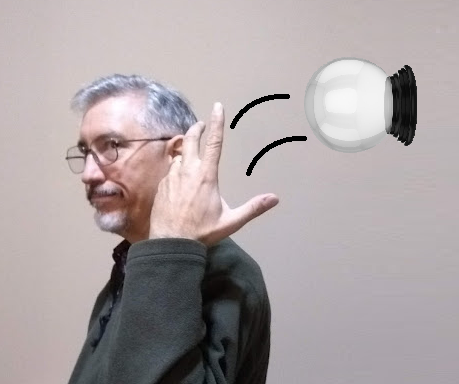It’s the most wonderful time of the year…when I judge how well I did at foretelling the attributes of science fiction books in 2024.
In past years, I’ve tried and failed with various techniques, but last year at this time I used a sure-fire method—the AI known as ChatGPT by OpenAI. Let’s see how well I did:
Prediction: AI Ethics and Rights
As artificial intelligence continues to advance, science fiction writers may delve into the ethical considerations and legal rights surrounding sentient AI beings. This could include questions about consciousness, autonomy, and the responsibilities of creators.
Assessment:
Ironic that an AI chatbot would make that prediction. It turned out well, though, with several examples.
- Your Utopia, by Bora Chung. Contains a story about an AI elevator that knows the building’s residents well.
- The Stardust Grail, by Yume Kitasei. A robot seeks its personality.
- Glass Houses, by Madeline Ashby. A mysterious house controlled by AI.
- Remember You Will Die, by Eden Robins. An AI coming to terms with the loss of its human daughter.
- Annie Bot by Sierra Greer. One guy’s perfect robot girlfriend starts to ask questions.
Prediction: Climate Crisis Solutions
With an increasing focus on climate change, science fiction could explore innovative and speculative solutions to the environmental challenges facing the planet. This might include technologies to reverse environmental damage or new ways of sustainable living.
Assessment:
CliFi itself did well, yes, but few authors (that I found) focused on solutions to reverse climate change.
- Archangels of Funk, by Andrea Hairston. After the Water Wars, a new and harsh reality complicates life for refugees.
- Pink Slime, by Fernanda Trías. An algae bloom results in a mysterious plague.
- Lost Ark Dreaming by Suyi Davies Okungbowa. After water levels rise, people live in towers, in a hierarchy.
- Yours for the Taking, by Gabrielle Korn. Only a few can escape climate catastrophe within protected enclosures.
Prediction: Neurotechnology and Brain-Computer Interfaces
As developments in neurotechnology progress, science fiction writers may explore the implications of widespread use of brain-computer interfaces. Themes could include mind control, augmented intelligence, and the potential societal impacts of such technologies.
Assessment:
I didn’t come across any examples of this. If you know of one, please post a comment.
Prediction: Space Exploration and Colonization
Given the growing interest in space exploration, science fiction could continue to explore themes related to interplanetary travel and the challenges of colonizing other celestial bodies. This may include the societal dynamics of living in space and encounters with extraterrestrial life.
Assessment:
ChatGPT didn’t stray far out on a limb with this prediction.
- The Imposition of Unnecessary Obstacles, by Malka Older. Part space opera, part mystery. Visit Jupiter’s moon, Io.
- Floating Hotel, by Grace Curtis. A spaceship-hotel for the rich.
- Calypso, by Oliver K. Langmead. A generation ship.
- The Stardust Grail, by Yume Kitasei. Crime adventure in space, with aliens.
- The Mercy of Gods, by James S.A. Corey. Aliens give some humans a test—pass the test and serve as slaves or fail the test and all humanity dies.
- New Adventures in Space Opera, edited by Jonathan Strahan. Space opera that’s more diverse, more political.
- Orbital, by Samantha Harvey. Six people orbit and observe the Earth.
Prediction: Genetic Engineering and Biohacking
Advances in genetic engineering and biohacking may lead science fiction writers to explore the consequences of manipulating DNA, creating designer organisms, or even the potential for genetic warfare.
Assessment:
This prediction panned out, with several novels, but none seem to delve into large-scale genetic warfare.
- These Fragile Graces, This Fugitive Heart, by Izzy Wasserstein. Protagonist is attacked by clones of herself.
- Under the Eye of the Big Bird, by Hiromi Kawakami. Humans cloned partly from animal DNA.
- Extinction, by Douglas Preston. A resort with genetically restored Pleistocene beasts.
- Baby X, by Kira Peikoff. Anyone can create a baby using a celebrity’s DNA.
Prediction: Virtual Reality and Alternate Realities
With the evolution of virtual reality, science fiction could depict worlds where the lines between physical and virtual realities blur, exploring themes of identity, addiction, and the consequences of living in immersive digital environments.
Assessment:
The chatbot scored well on this one.
- In Universes, by Emet North. Alternate universes connecting two people.
- Rakesfall, by Vajra Chandrasekera. Two souls reincarnate together through multiple futures.
- Time’s Agent, by Brenda Peynado. Other universes provide more worlds to colonize.
- The Family Experiment, by John Marrs. When real kids become too expensive, try raising virtual children.
- The Other Valley, by Scott Alexander Howard. An infinite sequence of identical valley towns, separated by borders and time.
Prediction: Post-Pandemic Societies
In the wake of global events, science fiction writers might explore the long-term societal impacts of pandemics, including changes in governance, healthcare systems, and the dynamics of human interaction.
Assessment:
Not too many in this category. Maybe SciFi writers sensed the public is well over COVID.
- The Stardust Grail, by Yume Kitasei. A virus causes visions and headaches.
- Sky Full of Elephants, by Cebo Campbell. All American white people disappear and the survivors must deal with a new, post-racial reality.
Prediction: Quantum Computing and Reality Manipulation
The advent of quantum computing may inspire science fiction narratives centered around the manipulation of reality, parallel universes, and the consequences of unlocking the full potential of quantum technology.
Assessment:
I think ChatGPT jumped the gun on this, and predicted it a couple of years early. I found no examples. Again, if you’ve got one, please post a comment.
Prediction: Social Media and Surveillance Culture
With the increasing prevalence of surveillance technologies and the influence of social media, science fiction could examine dystopian futures where privacy is almost nonexistent, exploring themes of control, rebellion, and the impact on individual freedom.
Assessment:
SciFi authors wrote more about the surveillance part than the social media part.
- The Ragpicker, by Joel Dane. Life after a digital apocalypse.
- Your Utopia, by Bora Chung. Contains story about an AI elevator that surveils the building’s residents.
- Womb City by Tlotlo Tsamaase. A woman’s husband monitors her every move using a microchip.
Prediction: Augmented Reality in Everyday Life
As augmented reality becomes more integrated into daily life, science fiction might explore the societal implications of a world where digital information overlays the physical world. This could include themes of information manipulation, addiction, and the consequences of an increasingly connected reality.
Assessment:
I found only one example here, but I bet more exist.
- The Blueprint, by Rae Giana Rashad. An algorithm decides your spouse, home, and job.
Conclusion
Overall, ChatGPT performed well in the categories I’d consider obvious, but poorly in others.
Visit this site next week to see my accurate predictions for science fiction in 2025. You wouldn’t want to miss any post by—
Poseidon’s Scribe



